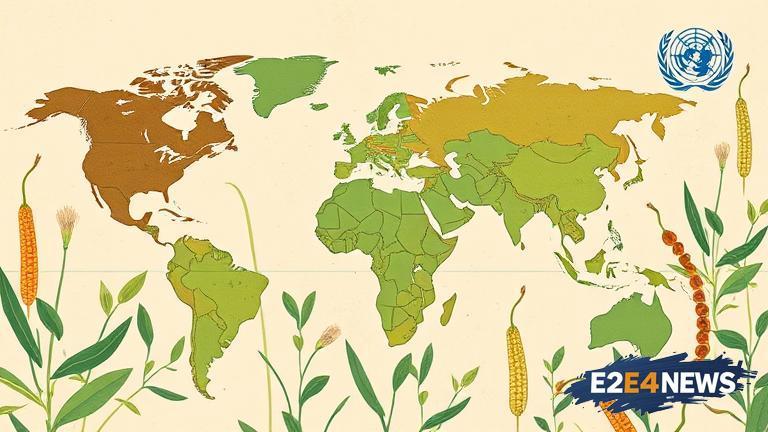The United Nations has amplified its calls for the global adoption of legumes as a crucial step towards achieving sustainable food systems. Legumes, which include beans, lentils, and peas, are rich in protein, fiber, and various essential nutrients, making them an excellent alternative to meat and other resource-intensive food sources. The UN’s push for legumes is driven by the need to address the pressing issues of climate change, biodiversity loss, and food insecurity. By incorporating more legumes into their diets, individuals can significantly reduce their carbon footprint and contribute to a more sustainable food system. Legumes have a lower environmental impact compared to animal-based food sources, requiring less water, land, and energy to produce. Furthermore, legumes are a vital source of nutrients for millions of people around the world, particularly in developing countries where access to other protein sources may be limited. The UN’s Food and Agriculture Organization (FAO) has highlighted the importance of legumes in achieving the Sustainable Development Goals (SDGs), particularly SDG 2, which aims to end hunger and all forms of malnutrition. In addition to their nutritional benefits, legumes also play a critical role in maintaining soil health, promoting biodiversity, and supporting ecosystem services. The UN is working with governments, international organizations, and civil society to promote the production, trade, and consumption of legumes. This includes initiatives to improve legume yields, enhance storage and transportation infrastructure, and develop new products and technologies that showcase the versatility of legumes. The global legume market is expected to grow significantly in the coming years, driven by increasing demand for plant-based protein sources and sustainable food options. However, there are also challenges to be addressed, including the need for improved crop varieties, better farming practices, and enhanced market access for small-scale farmers. The UN’s efforts to promote legumes are part of a broader strategy to transform the global food system, which is currently responsible for around 30% of greenhouse gas emissions and 70% of freshwater usage. By adopting more sustainable food practices, including the consumption of legumes, individuals can help reduce the environmental impact of food production and contribute to a more equitable and sustainable food system. The benefits of legumes extend beyond the environment and human health, as they also have the potential to support rural development and poverty reduction. In many developing countries, legume production is a vital source of income for small-scale farmers, who can benefit from improved market access and prices. The UN’s focus on legumes is also aligned with the goals of the International Year of Fruits and Vegetables 2021, which aims to raise awareness of the importance of fruits and vegetables in promoting healthy diets and reducing the burden of non-communicable diseases. Overall, the UN’s call to action on legumes is a critical step towards creating a more sustainable food system that prioritizes human health, environmental protection, and social equity. As the global population continues to grow, it is essential that we adopt more sustainable food practices, including the consumption of legumes, to ensure a food-secure future for all. The UN’s efforts to promote legumes are a key component of this strategy, and it is essential that governments, international organizations, and civil society work together to support the production, trade, and consumption of these vital crops. By doing so, we can help create a more sustainable food system that benefits both people and the planet. The importance of legumes cannot be overstated, and it is essential that we take action to promote their production and consumption. This includes supporting small-scale farmers, improving crop varieties, and developing new products and technologies that showcase the versatility of legumes. The benefits of legumes are clear, and it is time for us to take action to promote their adoption and create a more sustainable food system for all.





